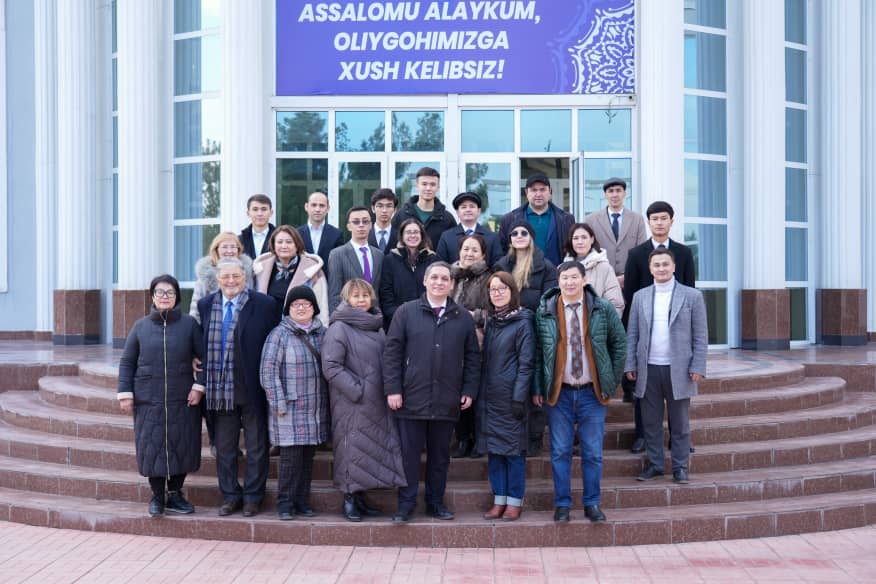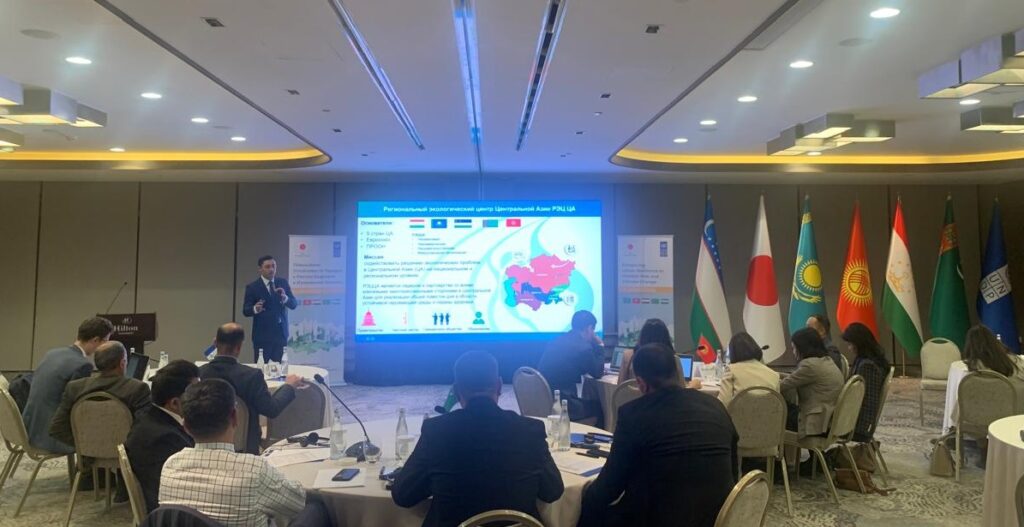Baku – Azerbaijan. The Regional Climate Action Transparency Hub for Central Asia (ReCATH) hosted an event “Enhancing Climate Action Transparency in Central Asia: Lessons, Needs, and Future Directions” in the Qazaqstan Pavilion on 20 November 2024. The event focused on enhancing climate action transparency in the region amidst the backdrop of COP29.

The event aims to showcase ReCATH’s achievements and plans to support Central Asian countries in fulfilling their climate commitments through improved transparency systems and capacity-building. As noted, the next phase of the ReCATH project will begin in 2025.
Vice Minister of Ecology and Natural Resources of the Republic of Kazakhstan Mansur Oshurbayev stressed the importance of creating reliable, transparent reporting and data systems in climate change. He emphasized the important role of the Regional Environmental Centre for Central Asia (CAREC), and in particular the ReCATH project, in helping to collect and monitor the data necessary for the further implementation of the commitments made under the Paris Agreement.
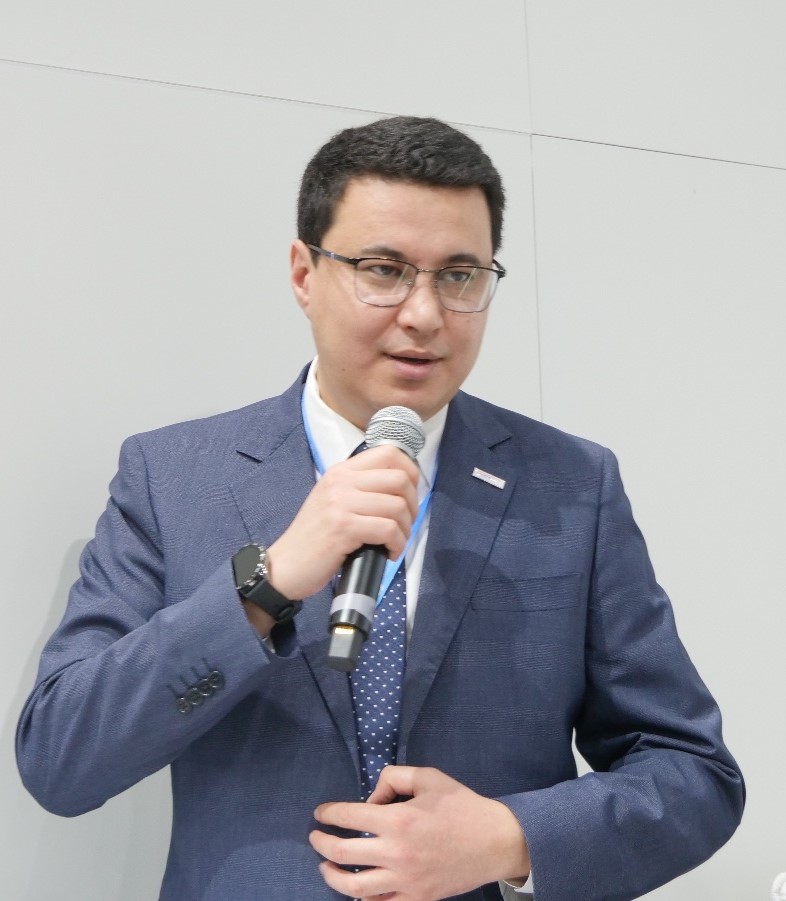
According to him, significant progress has been made in improving the monitoring and reporting system, and the quality of greenhouse gas inventory reports has improved. This allows the country to successfully participate in international climate initiatives, expand cooperation, fulfil commitments under the Paris Agreement and increase climate transparency.
Henning Wuester, Director of the Initiative for Climate Action Transparency (ICAT), highlighted the importance of COP29 as a significant milestone in submitting biennial transparency reports (BTRs) and advancing the objectives of the Paris Agreement that underscores the critical role of transparency in planning, implementing, and assessing climate actions. Henning Wuester appreciated CAREC’s input in climate transparency in Central Asia.
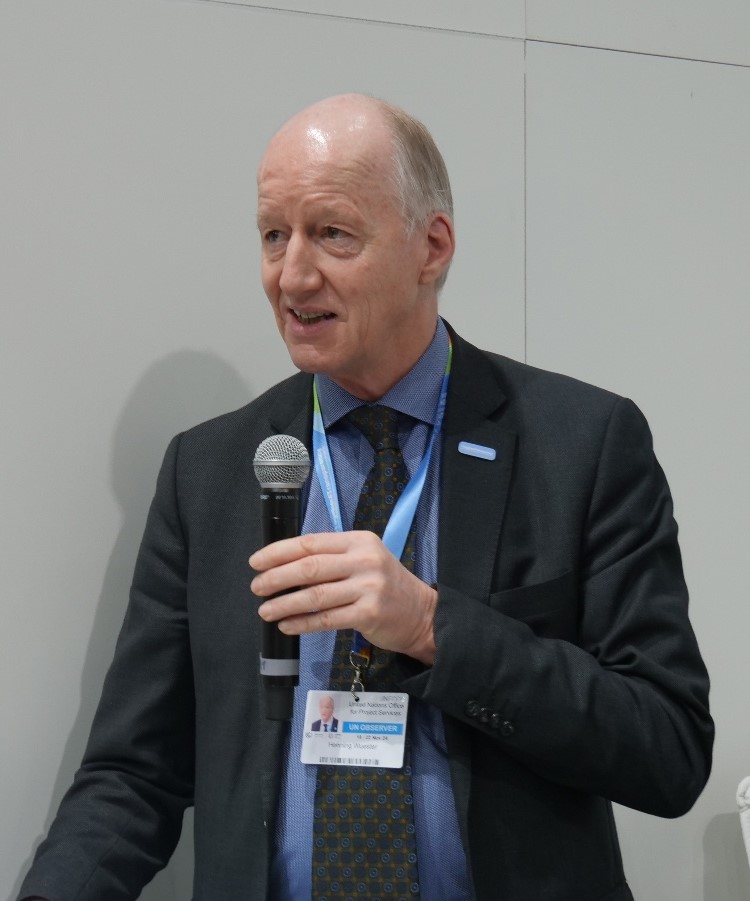
He commended Kazakhstan’s successful submission of BTR, emphasizing the need for qualified experts to enhance climate data quality and prepare for further submissions. This process is not an endpoint but a foundation for countries to define efficient climate actions and concentrate on their nationally determined contributions (NDCs). Additionally, Henning Wuester highly appreciated the contributions of CAREC and the leadership of its Executive Director, Zafar Makhmudov, in facilitating the ReCATH initiative, fostering collaborative efforts towards climate transparency and finance mobilization.
The CAREC Executive Director, Zafar Makhmudov, noted that Kazakhstan was one of the first countries in Central Asia to submit its BTS, reaffirming the importance of transparency in climate action. This report is based on a large amount of data, such as an inventory of greenhouse gases.
.
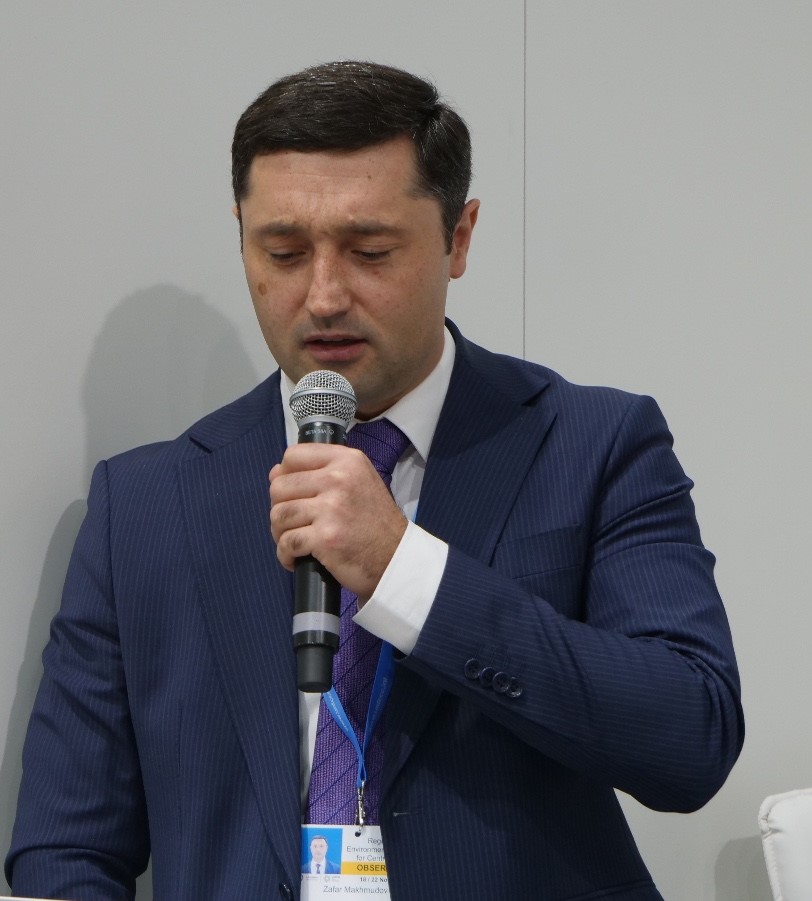
“In this regard, the ReCATH project, implemented within the framework of the ICAT Initiative, has become a platform for regional cooperation, bringing together experts in the field of inventory, adaptation and climate finance,” said Zafar Makhmudov.
The CAREC Executive Director expressed special gratitude to all partners and international organizations that played a key role in achieving success.
“Their support and participation inspire further work and development. Special thanks to Kazakhstan for organizing the pavilion and providing the platform, which was an important step toward strengthening our cooperation and jointly promoting common goals,” noted Zafar Makhmudov.
Key discussions of side event involved launching regional initiatives as a peer review process for greenhouse gas inventories, developing a methane inventory, and creating a regional green taxonomy to facilitate climate finance.
“The regional green taxonomy will identify eligible activities for green investments and free up key funds to support climate action across Central Asia,” believes ReCATH project Manager, Dilovarsho Dustzoda.
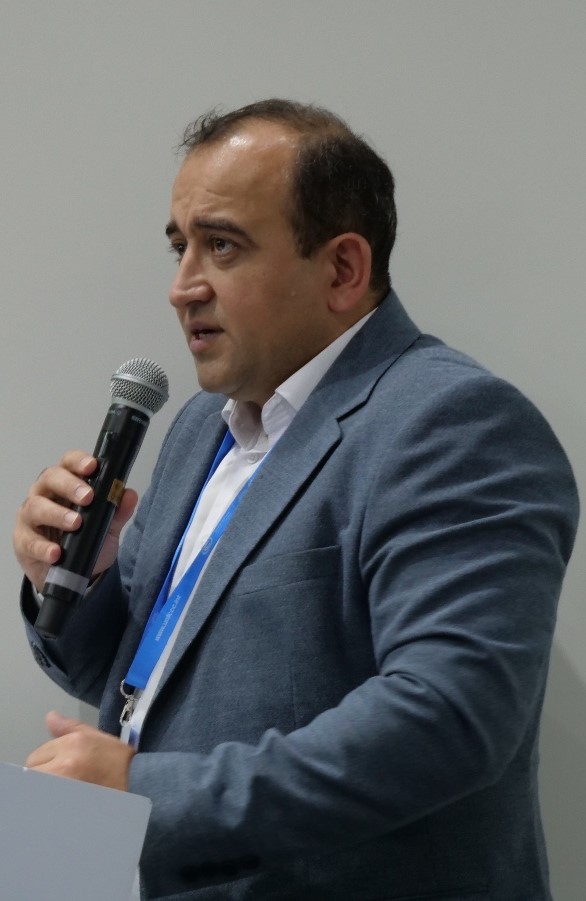
The ReCATH project aims to establish robust, transparent measurement, reporting and verification (MRV) systems and to provide countries with the tools to improve their climate actions.
“This collective effort, which brings together experts from Kazakhstan, Kyrgyzstan, Tajikistan, Turkmenistan and Uzbekistan, demonstrates the power of a regional approach that transcends borders for a common goal,” Zafar Makhmudov highlighted the importance of regional cooperation.
To scale up action and reach more actors, ReCATH is working closely with the Greenhouse Gas Management Institute (GHGMI), the Capacity Building for Transparency Initiative – Global Support Programme (CBIT-GSP), FAO, and CAREC’s regional partners to identify gaps, build capacity and a strong foundation for climate reporting.
According to ReCATH project Manager, Dilovarsho Dustzoda, the series of technical seminars, workshops and practical support provided by ReCATH allowed national experts to strengthen their inventory systems, develop accurate forecasts and integrate climate aspects into policy measures.
“The path to climate resilience requires more than just technical solutions. It requires close regional cooperation, the harmonization of strategies and the involvement of a wide range of stakeholders – from politicians to civil society. Our future depends on how effectively we can coordinate and build capacity, share experiences, and develop regional initiatives that advance meaningful climate action,” believes the CAREC Executive Director, Zafar Makhmudov.
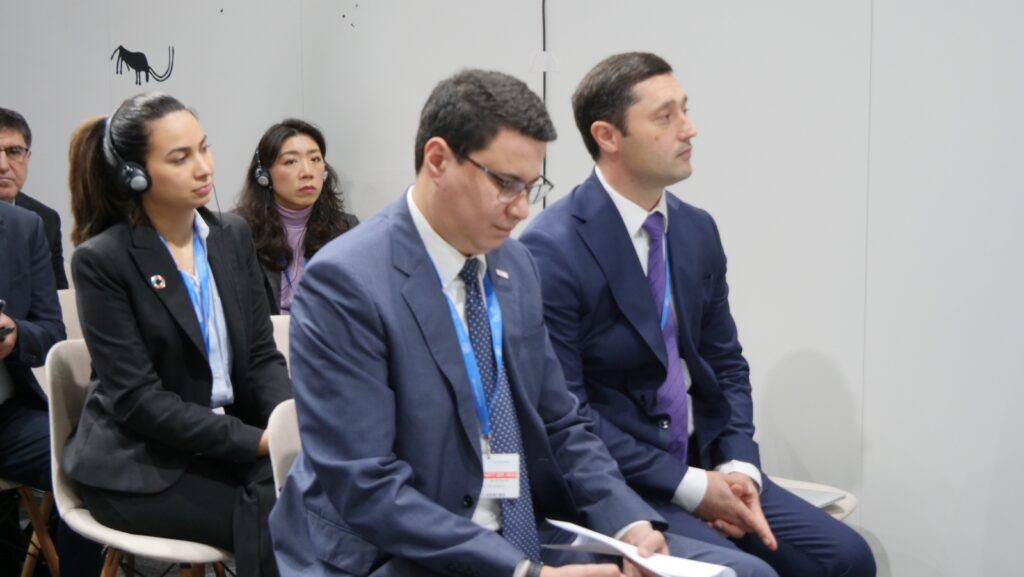
Additional information:
Dilovarsho Dustzoda, ReCATH Project Manager, recath_manager@carececo.org
Kravtsova Oksana, ReCATH Project Specialist, okravtsova@carececo.org
ICAT website: www.climateactiontransparency.org
Project page: https://carececo.org/main/activity/projects/recath


